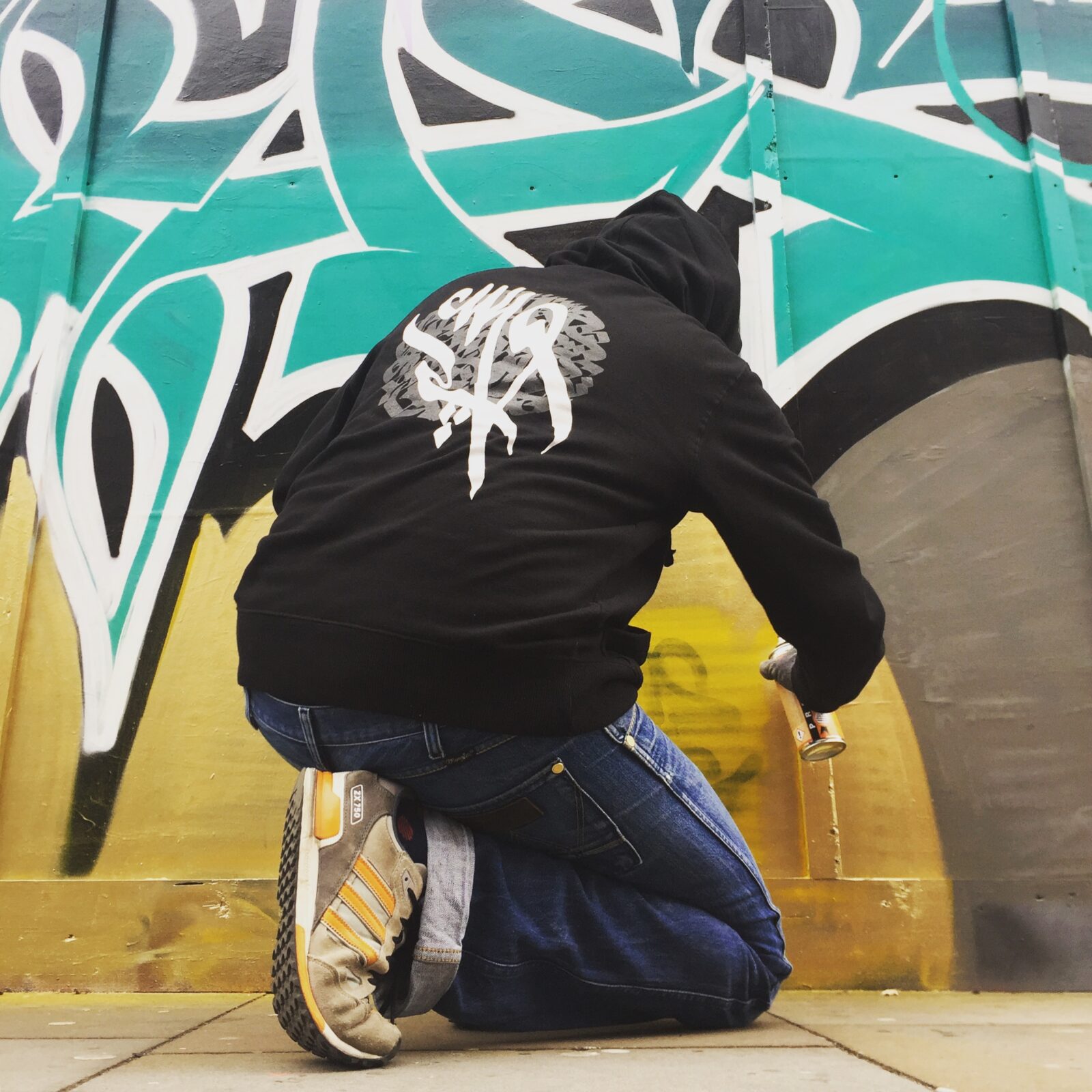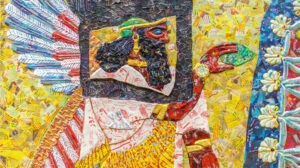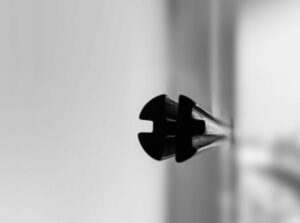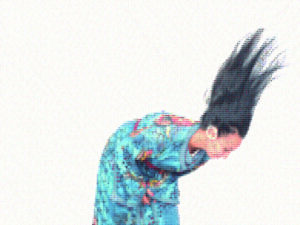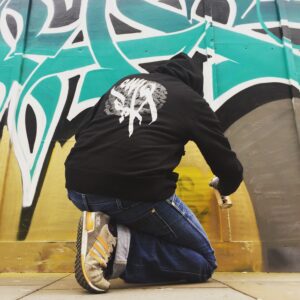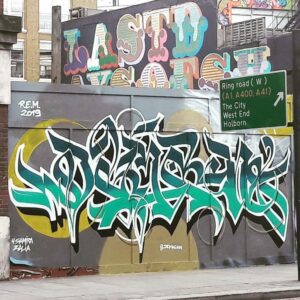His real name is Ahmed Ahamdi but he prefers to be called Dema One, just like the signature on his artwork, be it the graffiti on a wall, a painting in a gallery or an installation piece. Recently in London, I met up with the 48 years old Belgian-Moroccan street artist where his UK solo exhibition titled ‘REM’ was on display at the P21 Gallery.
Tireless and passionate he has dedicated most of his life to the ethos of a hip hop collective known as ‘CNN 199’, a crew in existence for over 30 years that originated in and around the city of Brussels. Wherever Dema travels and whichever urban projects he undertakes, he does so in his capacity as a founding member of CNN with its strong message of empowering disadvantaged youth and vulnerable others.
One directive of the counter sub-culture is for anyone disaffected by a society, a system or other oppressive force, to go beyond the limitations imposed upon them by thinking and acting outside the box and finding ways of assertive expression without losing one’s way to negative influences. In tandem with deep inner reflection, one can tap into and harness inner strength and transform toxic environments and energies into something constructive and powerful.
Dema knows what it is like to grow up in a deprived and poor neighbourhood, where the lure of drugs, gangs and violence is everywhere; and, when, the political and economic systems have failed you. The challenge becomes how you find a way out to avoid further disadvantage, criminality, trouble with the police or dying young from an overdose or an attack, as happened to some of his contemporaries.
He relayed to me a significant period during his teenage years when Roger Nols, the Mayor of his town of Schaerbeekin in Brussels, had instigated a vendetta and public harassment campaign against the local North African community, suggesting that they leave Belgium and go back to where their parents came from. He used billboards to insult them with images of camels.
Dema: “That was my first struggle to fight against this ultra-right Mayor and the police who sided with him because we were the sons of immigrants. We tagged all the buildings in the city with our graffiti to make a statement that he is no one to us and to tell him and the police to ‘f**k off! It didn’t’ seem fair that the Moroccans were being targeted and told that we’re not wanted.”
“It began like this until I realised that I could do more than just tagging or vandalising… I could use Arabic calligraphy. So for the first time in 1991, I wrote in Arabic the word meaning ‘brothers’ in a little local square; and, when all the white people came and asked me why are you writing in Arabic, I said because it is my roots and I want to show with this calligraffiti that we can live and grow up together and make something together. I painted everywhere in town in Brussels.”
With time Dema’s work has evolved with his brush strokes and spray paint becoming bolder, more confidant and vibrant, as well as drawing upon Arabic poetry and the art of storytelling. With it too he has developed a philosophic and practical approach to belonging to two different cultures and sensibilities, exploring multiple identities and how to resolve one’s sense of inner and outer exile.
Dema: “My work is a mix of East and West culture, about tradition and modernity, graffiti and calligraphy. I try to mix Latin and Arabic letters to have my way; not just a way, but my way and to fulfil my goal. I want to transmit and educate people to communicate with each other and not be afraid to confront and exchange ideas and philosophies. It is to have a better life and a better society.”
For the past seven years, in particular, Dema has been involved with youth organisations and charities in Belgium as well as worldwide commissioned urban assignments and artistic interventions. He is highly sought after for the way he conducts his workshops and engages with marginalised children and communities, schools and inmates too. He has led projects in the United States (Washington DC), Europe (Belgium, UK), South America (Rio De Janeiro, Brazil) Africa (Morocco, Benin), and Asia (United Arab Emirates). His next trip will be to Dakar, Senegal.
One notable experience for him was working with the youngsters of the Molenbeek Saint-Jean district in Brussels, which had become a notorious town due to the fact that the perpetrators and planners of several terrorist attacks in France and Belgium had come from there; including, those behind the November 2015 Paris attacks on the Bataclan concert hall, the March 2016 Brussels Airport attack and connections to Charles Hebdo attack.
Dema: “When there was an incredible amount of negative media coverage of the Muslim community within Molenbeek, I was contacted by the Youth Service who offered me a studio in exchange for working with the youngsters in areas that were predominantly North African.
“I tried to show these boys and girls that through graffiti and art they can have a new vision of life and emancipate themselves. I tried to open their minds to say there are many ways to achieve your goals, despite what schools might teach them. I open the space and say to them ‘Don’t worry if you fall once or twice, no matter what, you can get up again and succeed.”
Thus engaging with communities at the root level, Dema’s desire is to change the way people think and therefore how they might behave. He gives useful tools and offers plain honest motivation. He said to me: “If I can save one child, I will be happy.”
Exploring ‘REM’ (Resilience, Exile, Mutation) at the P21 Gallery
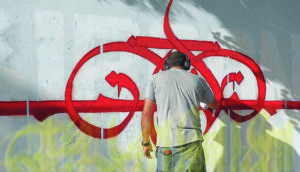
Turning to the exhibition at the P21 Gallery, it brought Dema’s take on the ‘REM’ concepts of resilience, exile and mutation, with reference to both his personal cross-cultural journey as well as that of the countless others who have had to traverse the earth alone and face the unknown. Curated by Zalia Zogheib, the works included his calligraffiti on the walls, with paintings and installations.
Set up so that viewers follow the psychological stages of embarking on a major journey, the display touched upon the mental and physical aspects of travelling and the risks involved. In the front room, for example, was the installation referring to a famous poem by the Palestinian writer Mahmoud Darwish on the state of feeling and thinking that you don’t belong.
Cut out from a blue translucent plastic material with the words in Arabic, the quote says: “I am from there, I am from here but I am neither there nor here. I have two names which meet and part, I have two languages, I forget which of them I dream in.” This is the beginning of the existential angst that will determine whether or not you decide to leave.
Moving on to the next wall, one encountered three sets of triptychs and two paintings to reflect mainly on the idea of resilience when one is in the midst of danger; and, also, when there is a need to overcome anger or rage at injustice or unfairness. Here the issue becomes how do you go forwards without turning into further victimisation and violence; and, also, how do you address the symptoms of a lived trauma. Among these triptychs was a tribute to the victims of the Grenfell Tower fire with a dedicated poem by the Nigerian writer Ben Okri.
Offering some more insight into this wall, Zogheib, who was with us on the day of the interview, said: “These triptychs represent the mental preparation that you might go through before you start your journey. These are all the fears and why we refer to the Grenfell Tower disaster. Also, we have the idea of one’s hopes and dreams prior to departure and one’s expectations of what will happen at the end.”
Walking further along was another installation called ‘Borders’, formed by a collection of nineteen Arabic words that have been cut out of translucent pink plastic and which hang from the ceiling. Some of the words were: Escape, Survive, Die, Cross, Love, Violence, Border, Illusion, Constraints and Identity.
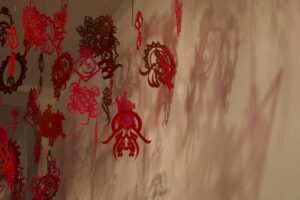
Dema: “This is when you set foot somewhere new and must undergo a process of transitioning. This is the most intense phase because it also means you have overcome the many hurdles to reach your destination. All the words try to convey the ‘in-between’ phase”.
In the lower space of the gallery there was another installation titled ‘REM’. This was an unusual four-sided structure made of translucent white felt material, where one finds a play of lights, shadows and reflections on the inside; and, where, also, one sees the word ‘Human’ written in four languages (Arabic, English, French and Amazigh) and then on the ground, the words ‘Resilience, Exile, Mutation.’
Dema: “When you cross the mountain, the sea or the borders, you achieve your way when you find yourself; and, that is reflected in the eyes of others and how they see you as a human, and not like an immigrant, escapee or survivor. You may be a survivor, escapee or immigrant, but the people see you with your name. It is about tolerance, resilience and sharing”.
Zogheib: “Throughout the journey and the inherent pain, the loss and loneliness, you get to a point when you realise that at the end of the journey, well I am resilient, I am adaptable, I mutate. It is a reference to how when you leave your country, even if you come back, you have changed. Whatever you do, you change. And that is all inherently human. We are human. We adapt. We are resilient.”
There were other items in the exhibition, including a video covering Dema’s trip to Benin in West Africa, and an installation titled ‘The Wisdom of Knowing Where I Come From’. This latter, in fact, offered the best image to leave with in one’s mind, as it incorporated photos of Dema’s Moroccan family (originally from Targuist and emigrated to Europe circa the 1950s and 1960s) on the one hand, and photos of his young Belgian CNN crew on the other, at the start of his journey 30 years ago. It perfectly sums up the wisdom he has acquired over that time and why he is now on a mission to impart his knowledge and skills to others.
Note: The ‘REM’ exhibition was sponsored by La Fédération Wallonie-Bruxelles in Brussels, the Watan Foundation in London and other private sponsors. It took place at the P21 Gallery 2-24 August, 2019.
Note: Dema One has been to London before and held workshops and mural paintings for children and adults in collaboration with Global Street Art, the Migration Museum, the Faith & Belief Forum and King’s College London.
For more information about the P21 Gallery: http://p21.gallery/
For more information about Dema One: https://demaone.org/

